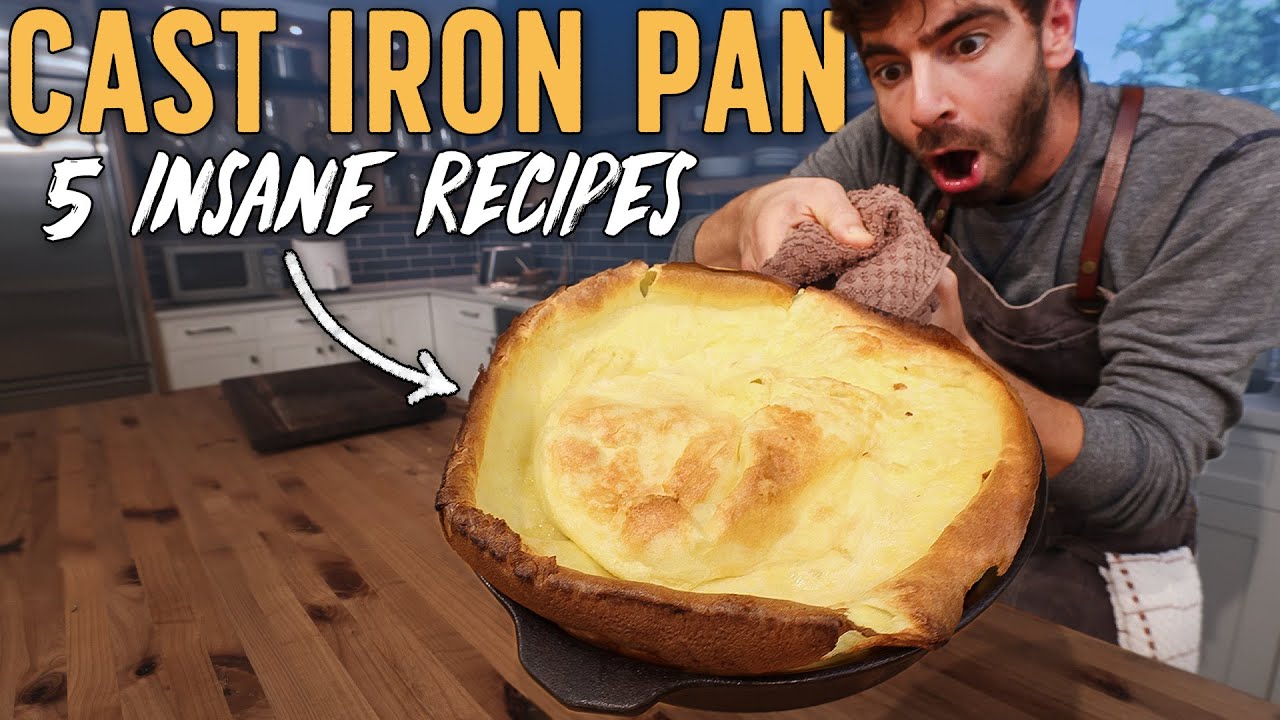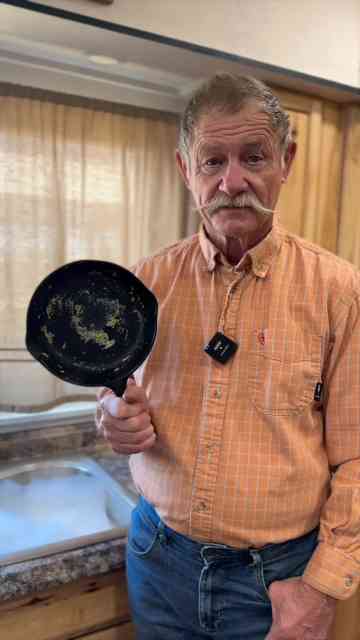2011 (1)
2016 (1035)
2017 (752)
2018 (978)
2019 (385)
2020 (175)
2021 (235)
2022 (101)
2023 (983)
2024 (800)

6 Foods You Should Be Cooking in a Cast-Iron Skillet, According to a Food Scientist
Story by Riley Wofford
https://www.msn.com/en-us/foodanddrink/foodnews/6-foods-you-should-be-cooking-in-a-cast-iron-skillet-according-to-a-food-scientist/ar-AA1xNOiN?ocid=BingHp01&pc=JV01&cvid=c49885953db642348521d8c5480ef247&ei=97
This versatile pan is our go-to.
We reach for our cast-iron skillet on the daily, probably more often than most other tools in our kitchen. Whether we’re getting a golden brown sear on a piece of meat, baking cornbread, or deep-frying just about anything, a cast-iron pan is often the best tool for the task—and that is true for both professional chefs and home cooks. A well-cared for cast-iron skillet is naturally nonstick and has the most even and reliable heat absorption, making it suitable for so many techniques and dishes. Plus, it can go from the stovetop to the oven to the grill. We spoke with a food scientist to find out which foods you should always cook in cast iron.
Meet Our Expert
Bryan Quoc Le, Ph.D., food scientist and author of 150 Food Science Questions Answered
Related: 34 Easy Cast-Iron Skillet Recipes The Whole Family Will Love
The Benefits of Cooking In Cast Iron
There are many reasons to cook in cast iron. They range from technique and ease of cooking to health benefits.
- Iron absorption: According to food science consultant and author Bryan Quoc Le, most foods can benefit from being cooked in cast iron, since small amounts of iron are absorbed during cooking. “Even something like pancakes or cornbread can have significant increases in iron content,” he says. The foods that benefit the most? Those that are moist (have a high water content), acidic, and cooked longer in the pan. However, in terms of acidity, it’s important to note that acidic foods can slowly erode the seasoning and coating of the pan, so that’s important to keep in mind–if the pan is well-seasoned (and well-loved), it’s usually not a problem that can’t be overcome.
- Even browning: Cast iron pans are unmatched when it comes to heat retention, which means that if you’re looking to get a nice golden brown crust on meat or vegetables, you’re in luck. The heat retention will also ensure that everything cooks as evenly as possible.
- Naturally nonstick: The longer you use your cast iron pans, the more they will develop a natural seasoning that gives the cast iron a nonstick quality. This makes your cast-iron skillet so versatile that you can cook anything from scrambled eggs to fried chicken in it.
Tips
How to boost iron absorption: Besides longer cooking times, pairing high-iron foods with vitamin C is the best way to increase iron absorption in the body. This can be done through supplements or by pairing a dish with Vitamin C-rich foods. "Cook chili or stew in a Dutch oven for several hours and serve it with something containing lime juice at the end of the meal, either directly into the chili or in some guacamole or salsa with chips on the side," says Quoc Le.
*** Video clip:
Clean the Cast Iron Skillet: 1) Table salt; 2) cut half of potato; 3) Rob the skillet with the moldering of circular-motion potato on table salt around the surface of the skillet until the white table salt turns to a brown color, like sandy grain.
- 1080p
- 720p
- 540p
- 360p
- Auto (540p)
 Clean That Up
Clean That UpThe Best Foods to Cook In a Cast-Iron Skillet
Seared Meats
Searing meat is probably what we use our cast-iron skillet for the most often. The pan's unparalleled heat retention ensures a perfect crust every time, and since the heat is distributed evenly, the meat will cook uniformly. It's also our go-to pan for reverse searing or finishing in the oven as it moves seamlessly from stovetop to oven. Try using your cast-iron skillet when you cook steak, pork chops, lamb chops, and even tuna steaks.
High Moisture Foods
According to Quoc Le, food with a high moisture content allows more iron to move into it because water acts as a medium. The majority of vegetables and fruits are mostly water, so braising or stewing them in cast iron will contribute to iron absorption. Even meat contains a relatively high amount of moisture, so keep on searing!
Pizza and Bread
Cast iron’s nonstick quality makes it perfect for baking pizza and bread. Use it for your next sourdough loaf or to make a skillet pizza.
Aside from bread, a cast iron skillet is a great way to prepare dishes like skillet cookies, brownies, and cornbread. Not only does it make for a fun presentation, but these dishes will bake more evenly than they would in a baking pan.
Fried Foods
Since cast iron is great at retaining heat, it’s much easier to keep frying oil at a steady temperature. Use a cast-iron skillet for fried chicken wings for your next game day.
One-Pan Meals
Keep your cast-iron skillet in rotation for dinner. It's great for lots of one-pan meals, including stir-fries, fried rice, or weeknight paella.
Read the original article on Martha Stewart





 LifebyMikeG
LifebyMikeG
 Kent Rollins
Kent Rollins